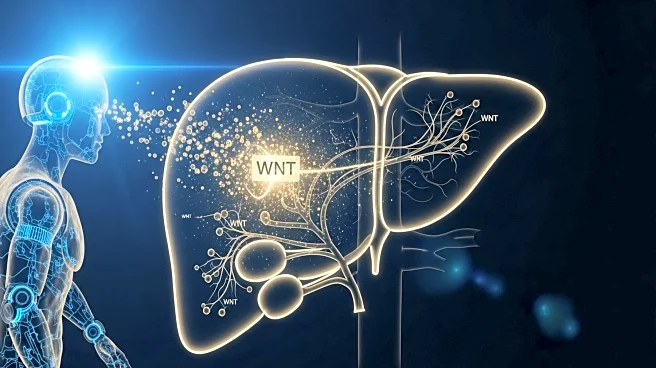What's Happening?
Recent research has demonstrated the potential of engineered exosomes to enhance liver repair and regeneration by activating WNT signaling pathways. The study involved the development of exosomes loaded with WNT3A and RSPO1 proteins, which were shown to effectively induce WNT signaling in vitro and in vivo. These exosomes were able to promote liver cell proliferation and reduce necrosis in mouse models of acute liver injury. The engineered exosomes were also found to accumulate in the liver and activate WNT signaling, leading to improved liver function and reduced fibrosis in chronic liver injury models.
Why It's Important?
The findings highlight a promising therapeutic approach for liver diseases, which are a significant health concern in the U.S. The ability of these engineered exosomes to promote liver regeneration and repair could lead to new treatments for conditions such as acute and chronic liver injury, potentially reducing the need for liver transplants. This research could also pave the way for advancements in regenerative medicine, offering hope for patients with liver diseases and contributing to the development of novel therapies.
What's Next?
Further research is needed to explore the long-term effects and safety of these engineered exosomes in human subjects. Clinical trials could be initiated to assess their efficacy in treating liver diseases in humans. Additionally, the potential application of this technology in other regenerative medicine fields could be investigated, expanding its therapeutic scope.
Beyond the Headlines
The study raises ethical considerations regarding the use of engineered biological materials in medicine. The long-term impact on human health and the environment needs careful evaluation. Moreover, the regulatory framework for such therapies will require adaptation to ensure safety and efficacy.











